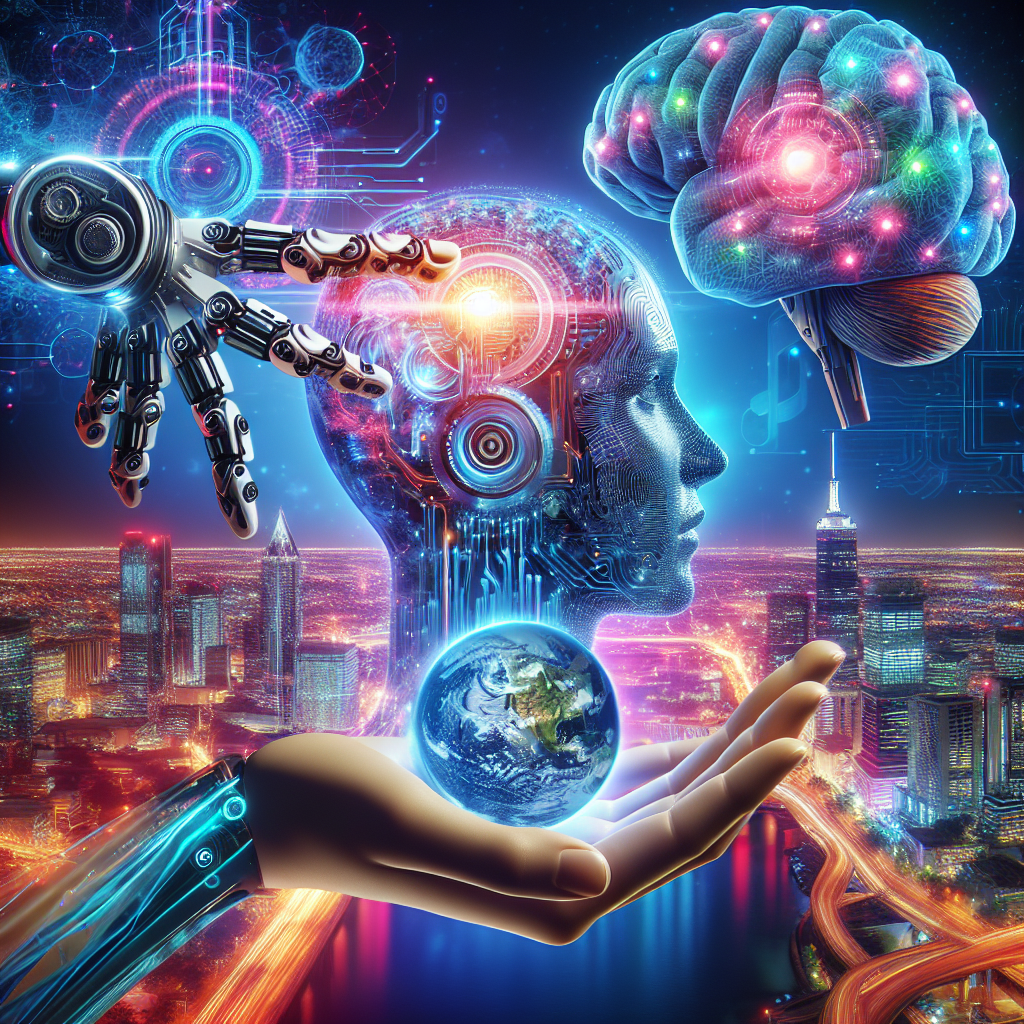The Future of Artificial General Intelligence: A Game-Changer for Humanity
Artificial General Intelligence (AGI) refers to the development of machines that possess the ability to understand, learn, and apply knowledge in a way that is indistinguishable from human intelligence. While artificial narrow intelligence (ANI) systems are designed for specific tasks, such as playing chess or recognizing speech, AGI aims to create machines that can perform a wide range of tasks and adapt to new situations without human intervention.
The pursuit of AGI has been a long-standing goal in the field of artificial intelligence (AI), with researchers and scientists working tirelessly to develop systems that can match or even surpass human intelligence. While the technology is still in its early stages, the potential impact of AGI on society and the world at large is immense.
In this article, we will explore the future of AGI and its implications for humanity.
The Current State of AGI Research
While significant progress has been made in the field of artificial intelligence in recent years, true AGI remains a distant goal. Current AI systems excel in specific tasks, such as image recognition or language translation, but struggle with tasks that require a deeper understanding of context and the ability to generalize knowledge.
One of the key challenges in developing AGI is creating systems that can learn and adapt in a way that is similar to human intelligence. While machine learning algorithms have made great strides in recent years, they still lack the flexibility and creativity of the human mind.
Researchers are exploring a variety of approaches to developing AGI, including neural networks, deep learning, and reinforcement learning. These methods have shown promise in enabling machines to learn from data and experience, but there is still much work to be done before AGI becomes a reality.
The Potential Impact of AGI
The development of AGI has the potential to revolutionize virtually every aspect of society. From healthcare and transportation to education and entertainment, AGI could transform the way we live and work in ways we can only begin to imagine.
One of the most significant benefits of AGI is its ability to solve complex problems that are beyond the capabilities of human intelligence. For example, AGI systems could revolutionize drug discovery by analyzing vast amounts of data to identify new treatments for diseases. They could also help to address global challenges such as climate change and poverty by developing innovative solutions that are beyond the reach of human intelligence alone.
AGI could also have a profound impact on the job market, as machines become increasingly capable of performing tasks that were once reserved for humans. While this could lead to widespread automation and job displacement, it could also create new opportunities for innovation and creativity as humans are freed from mundane tasks to focus on more meaningful work.
In addition to its potential benefits, AGI also raises a number of ethical and societal concerns. For example, there are concerns about the impact of AGI on privacy, security, and autonomy. There are also questions about how we should regulate and govern AGI to ensure that it is used ethically and responsibly.
The Future of AGI
While the development of true AGI remains a challenging task, researchers are making significant progress in the field of artificial intelligence. Breakthroughs in machine learning, neural networks, and other AI technologies are bringing us closer to the goal of creating machines that possess human-like intelligence.
In the coming years, we can expect to see continued advancements in AGI research, as scientists and engineers work to overcome the technical challenges that stand in the way of creating truly intelligent machines. This could involve developing new algorithms, hardware, and software that enable machines to learn and adapt in a way that is similar to human intelligence.
As AGI becomes a reality, we can expect to see a wide range of applications across industries and sectors. From healthcare and finance to transportation and entertainment, AGI could revolutionize the way we live and work, creating new opportunities for innovation and growth.
FAQs
Q: What is the difference between AGI and ANI?
A: AGI refers to machines that possess human-like intelligence and the ability to learn and adapt in a way that is similar to humans. ANI, on the other hand, refers to machines that are designed for specific tasks, such as playing chess or recognizing speech.
Q: What are the ethical concerns associated with AGI?
A: There are a number of ethical concerns associated with AGI, including issues related to privacy, security, and autonomy. There are also questions about how we should regulate and govern AGI to ensure that it is used ethically and responsibly.
Q: How will AGI impact the job market?
A: AGI has the potential to automate many tasks that are currently performed by humans, which could lead to widespread job displacement. However, it could also create new opportunities for innovation and creativity as humans are freed from mundane tasks to focus on more meaningful work.
Q: When can we expect to see true AGI?
A: While the development of true AGI remains a challenging task, researchers are making significant progress in the field of artificial intelligence. It is difficult to predict exactly when AGI will become a reality, but we can expect to see continued advancements in the coming years.

